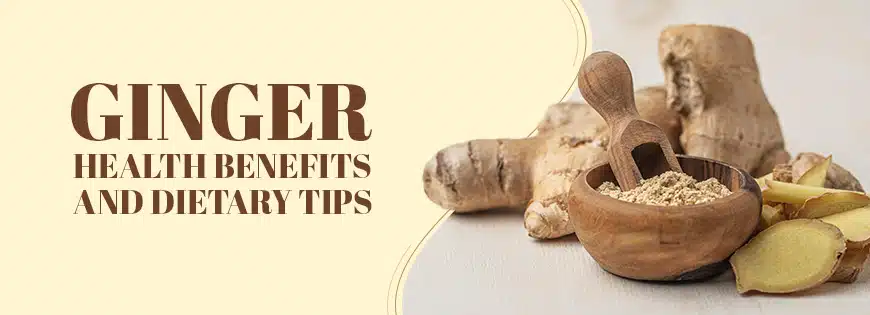Moringa oleifera, often referred to as the “miracle tree” or “drumstick tree,” is a nutrient-dense plant native to parts of Africa and Asia. Its leaves, seeds, and pods are packed with essential vitamins, minerals, and powerful antioxidants. For centuries, it has been used in traditional medicine, but more recently, science has begun to validate its impressive health benefits.

1. Rich in Nutrients and Antioxidants
Moringa leaves are loaded with essential nutrients, making it a highly nutritious plant. They are particularly high in vitamins and minerals, such as vitamin A, vitamin C, calcium, and potassium.
- Glucosinolates: Found in leaves and seeds, these compounds help lower blood pressure and relax muscles.
- Flavonoids: Rich in antioxidants like quercetin and kaempferol, especially in Indian varieties.
- Folate (Vitamin B9): Moringa is a great source of bioavailable folate, essential in cell growth & pregnancy.
- Carotenoids: Contains lutein and zeaxanthin, which support eye health and have antioxidant properties.
- Omega-3 and Omega-6 Fatty Acids: Provides healthy fats crucial for heart and brain health.
- Minerals: Rich in potassium, calcium, and magnesium, supporting bone and muscle health.
- Iron: High in bioavailable iron, aiding in the prevention of anemia.
- Protein: Seeds are protein-rich, especially when defatted, making them valuable in food formulations.
In summary, Moringa oleifera is a nutrient-dense plant with essential vitamins, minerals, and antioxidants.
2. Lowers Blood Sugar Levels
One of the most promising benefits of moringa is its ability to help regulate blood sugar levels, which is essential for managing or preventing diabetes. Several animal and human studies have demonstrated moringa’s hypoglycemic effect.
This review explored the effects of Moringa oleifera on blood glucose levels in both humans and animals. Among the 30 studies reviewed, five out of seven human studies showed significant reductions in blood glucose levels in diabetic patients, while 21 of the 23 animal studies demonstrated similar results. M. oleifera was administered in powdered leaf form for humans and as aqueous or ethanol extracts for animals. Although the findings suggest that M. oleifera may lower blood glucose, the evidence is not strong enough to recommend it as a primary treatment for diabetes in humans, warranting further research.
Also Read: Does Forskolin Work? Uses, Risks, and Benefits
Another article reviews the effects of Moringa oleifera (MO) on blood sugar and insulin levels in both animals and humans. Animal studies show that MO consistently lowers blood sugar and may improve insulin production in diabetic conditions. However, human studies give mixed results, with some showing blood sugar reduction while others do not.
One more study found that MO reduced blood sugar at a dose of 200 mg/day/kg and lowered blood pressure at 400 mg/day/kg in pregnant diabetic rats. This suggests Moringa’s potential for managing diabetes and hypertension during pregnancy.
3. Reduces Inflammation
Chronic inflammation is linked to many serious health conditions, including heart disease, cancer, and arthritis. Moringa contains a variety of anti-inflammatory compounds, including isothiocyanates, flavonoids, and phenolic acids, which have been shown to reduce inflammation in the body.
The study discussed the antioxidant, anti-inflammatory, and anti-arthritic potential of Moringa extracts. It found that methanolic and aqueous extracts exhibited significant antioxidant activity, prevented protein denaturation, stabilized red blood cell membranes, and showed anti-proteinase activity.
In rat models, the extracts reduced paw inflammation and prevented arthritis-induced anemia and weight loss. The presence of compounds like kaempferol, gallic acid, quercetin, and coumaric acid contributed to the beneficial effects. Overall, the study confirmed the therapeutic potential of Moringa oleifera in managing arthritis.
Also Read: The Health Benefits of Holy Basil
4. Improves Heart Health
Moringa may offer protection against heart disease, the leading cause of death worldwide. Several studies suggest that moringa can help lower cholesterol and protect against plaque buildup in the arteries, which are significant contributors to cardiovascular disease.
A study looked at how Moringa oleifera leaf extract (MEML) could help with obesity and heart problems caused by a high-fat diet in rats. Over 12 weeks, rats given MEML had better cholesterol levels, gained less weight, and had stronger natural defenses against heart damage. The extract also helped repair damaged heart tissue and lowered harmful heart enzymes. The study suggests that MEML could be useful for treating obesity and preventing heart issues in the future.
5. Supports Brain Health and Cognitive Function
Moringa may also support brain health and improve cognitive function. The high concentration of antioxidants, particularly vitamin C and E, in moringa helps fight oxidative stress and inflammation, both of which are linked to cognitive decline and neurodegenerative diseases like Alzheimer’s.
This study explored how Moringa oleifera leaf extract could help improve memory and protect the brain from degeneration in a rat model of age-related dementia. The researchers induced memory problems in rats using a chemical (AF64A) that damages brain cells. They then gave the rats different doses of Moringa extract for 14 days. Results showed that the extract significantly improved memory, reduced brain cell damage, and enhanced antioxidant activity in the brain.
The extract also lowered oxidative stress, which is linked to aging and dementia. The findings suggest that Moringa could be a promising natural remedy for protecting against memory loss and brain degeneration, potentially helping with conditions like Alzheimer’s disease. However, more research is needed to fully understand its effects.
6. Promotes Liver Health and Detoxification
The liver is essential for detoxifying the blood, metabolizing fats, and processing nutrients from food. Moringa oleifera has been shown to protect the liver against damage caused by toxins, thanks to its high antioxidant content.
One study highlights the protective effects of Moringa oleifera (MO) against non-alcoholic fatty liver disease (NAFLD) in rats. The plant’s leaf and stem extracts, rich in antioxidants like quercetin, gallic acid, and caffeic acid, were shown to reduce liver fat, inflammation, and improve lipid profiles in rats fed a high-fat diet. MO lowered harmful cholesterol and liver enzymes while increasing beneficial HDL levels. The study suggests that Moringa oleifera’s antioxidant and hepatoprotective properties make it a promising natural remedy for preventing or managing NAFLD.
Moringa oleifera is a true superfood, offering a wide range of science-backed health benefits. From lowering blood sugar levels and reducing inflammation to promoting heart, brain, and liver health, it is an excellent addition to any diet. However, while moringa offers promising health benefits, it is essential to consult a healthcare professional before incorporating it into your routine, especially if you are pregnant, nursing, or taking medications.
Incorporating moringa into your diet can be as simple as adding its powder to smoothies, soups, or teas, or consuming it in supplement form. With its rich nutrient profile and powerful bioactive compounds, moringa can be a natural remedy to enhance overall well-being.
Disclaimer: The Statement has not been evaluated by the EFSA, KFDA or FDA. This product is not intended to diagnose, treat, cure, or prevent any disease. While the information provided is based on credible references, we do not make any specific claims or guarantees. It is important to consult with your healthcare advisor for personalized advice and guidance related to your health.
References:
- https://www.sciencedirect.com/science/article/pii/S0254629918319446
- https://www.ncbi.nlm.nih.gov/pmc/articles/PMC3884855/
- https://onlinelibrary.wiley.com/doi/10.1155/2020/6583603
- https://www.sciencedirect.com/science/article/pii/S0254629918315710
- https://shorturl.at/p53lg
- https://pubmed.ncbi.nlm.nih.gov/32444043/
- https://www.ncbi.nlm.nih.gov/pmc/articles/PMC5033775/
- https://www.webmd.com/vitamins-and-supplements/health-benefits-moringa
- https://www.medicalnewstoday.com/articles/319916
- https://pubmed.ncbi.nlm.nih.gov/25374169/
- https://www.ncbi.nlm.nih.gov/pmc/articles/PMC9916933/
- https://www.sciencedirect.com/science/article/pii/S2213453016300362






